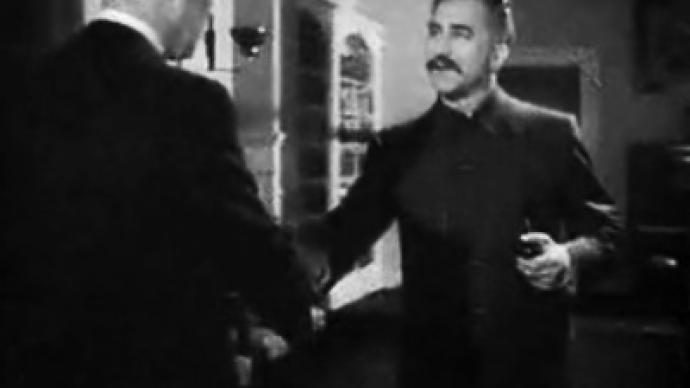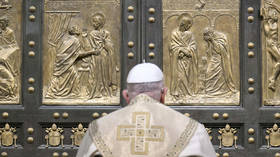Hollywood’s “love letter to Stalin” resurfaces

A peculiar piece of war-time propaganda, Warner Bros.’ film “Mission to Moscow” is being released direct to DVD. The movie was made to explain how the communist Soviet Union is a good ally for America against Nazism.
Commissioned in 1942, the flick brought to a pinnacle the newfound Hollywood trend to portray the allies in World War II as brave soldiers fighting against a common enemy with Americans. This was encouraged by the administration, and “Mission to Moscow” was commissioned by President Roosevelt himself, says the New York Post newspaper.
Several people who had worked on the just-released “Casablanca”, including director Michael Curtiz and scriptwriter Howard Koch, also served on the propaganda piece. The plot was loosely based on memoirs of US ambassador to Soviet Union, Joseph E. Davies.
Even after its release, “Mission to Moscow” was taken coldly by the public, with one critic labeling it “a $2 million love letter” to Joseph Stalin. The film took a rosy view of the notorious dictator, picturing him as a grandfatherly, benevolent figure.
He is portrayed as a wise leader, who saw the dangers of Nazism long before the West did and tried to buy time by signing a non-aggression pact, invaded Finland to protect it from Hitler, and launched mass purges in response to a German plot.
When the Cold War and the McCarthy’s “reds under bed” frenzy took swing, the film was used as prime evidence of communist sympathies in Hollywood. Studio co-founder Jack Warner was grilled before the House Un-American Activities Committee, and Howard Koch was sent into blacklisted exile.
Meanwhile, the embarrassing film was swept under carpet for decades. Only in the late 1970s was it aired in the US in a series on propaganda movies.












